Asparagus season begins at the end of April
This article was published on April 02, 2021 and updated on March 03, 2025.
It's Pentecost Saturday and I'm on my way to Eich. In the popular vacation region around Lake Eich I visit the Court of Jürgen Beckenbach. He is a third-generation farmer and cultivates around 200 hectares of land. Potatoes and onions are his core business, but from April to the end of June everything also revolves around asparagus at "Beckenbach's Potatoes & Vegetables".
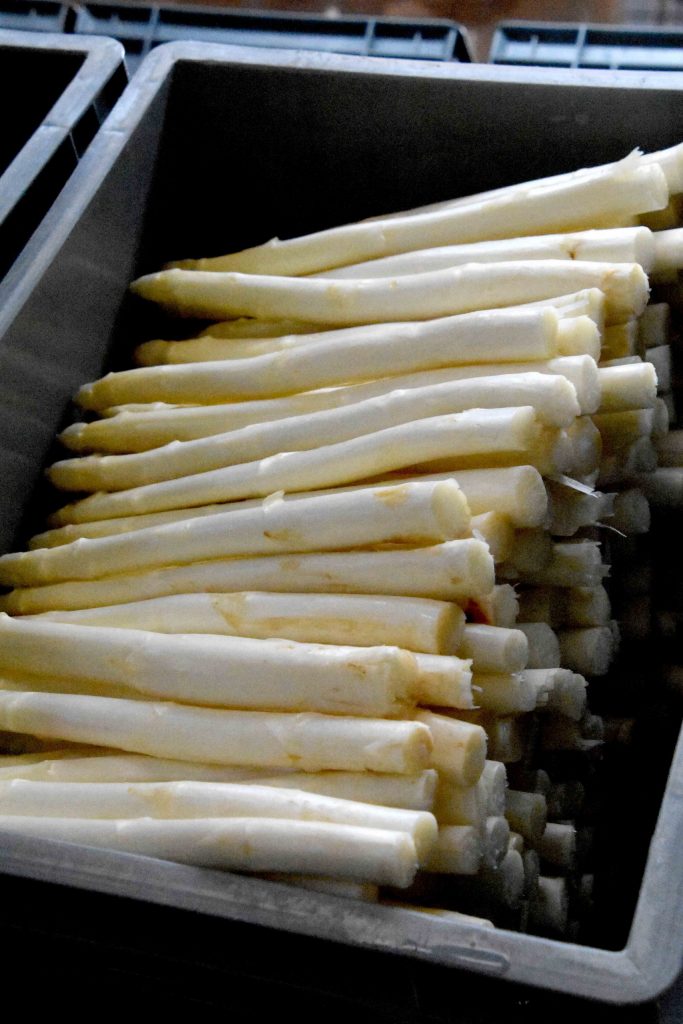
Busy times on Beckenbach's farm
Even before I turn into the spacious courtyard, I can see the the line of people in front of the open garage door. "Asparagus season is the busiest time on our premises," Jürgen Beckenbach will tell me later. tell me later. Outside of the asparagus season, there is no farm store here, but there is a cute but there is a cute "potato shop", where his customers can buy fresh potatoes and customers can buy fresh potatoes and onions at any time.
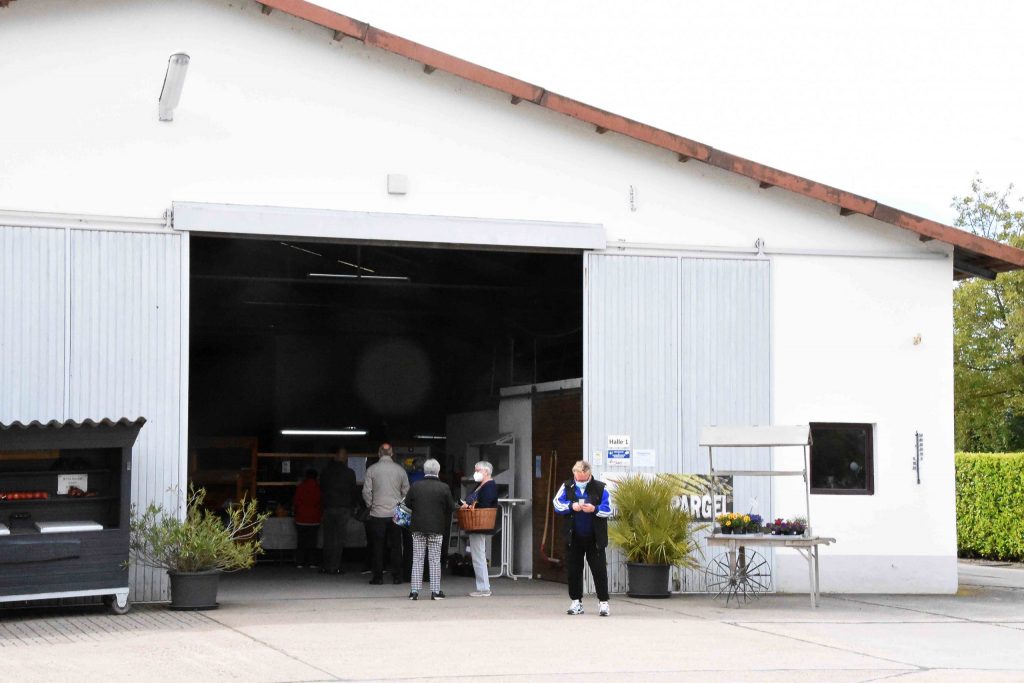
In the midst of the asparagus hustle and bustle, Jürgen Beckenbach takes time for our conversation. Contact with his customers is just as important to him, as the quality of his goods. The asparagus sorting machine is running next to us, scans each individual spear and carefully places it in the appropriate grade container. in the appropriate quality class container. Whether class I or class II, white or green - Beckenbach's asparagus look delicious.
Asparagus buying experience
Twice a day, his eight harvesters go out to the field stabbing. Five other employees process the asparagus fresh from the field in the hall - right in front of the customers. "The idea of letting customers take part in the asparagus the processing of the asparagus came about seven years ago," says Beckenbach. years ago," says Beckenbach, as we stand in front of the asparagus peeling machine and I marvel at the sophisticated technology. It's exciting to see the process "from from the field to the shopping basket" - where else can you do that in an age of large of large-scale farms and global retail chains?
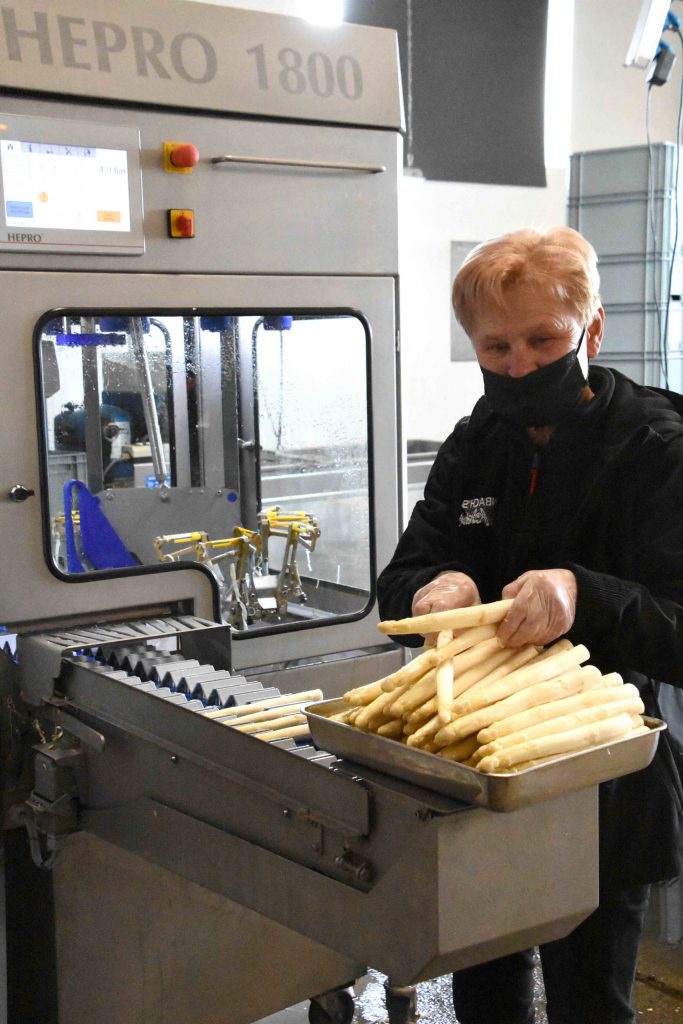
Beckenbach's farm is not small either and yet, or precisely awareness of regional vegetables and the appreciation of local agriculture are appreciation of local agriculture is particularly important to him. The direct marketing is a good way to raise awareness of seasonal products from the from the region. For decades, this has worked particularly well with asparagus hardly any other product sells as well in farm stores and stands as the "white gold". stands as the "white gold. At Beckenbach's, buying asparagus becomes an experience! an experience!
Philaroma = Much aroma
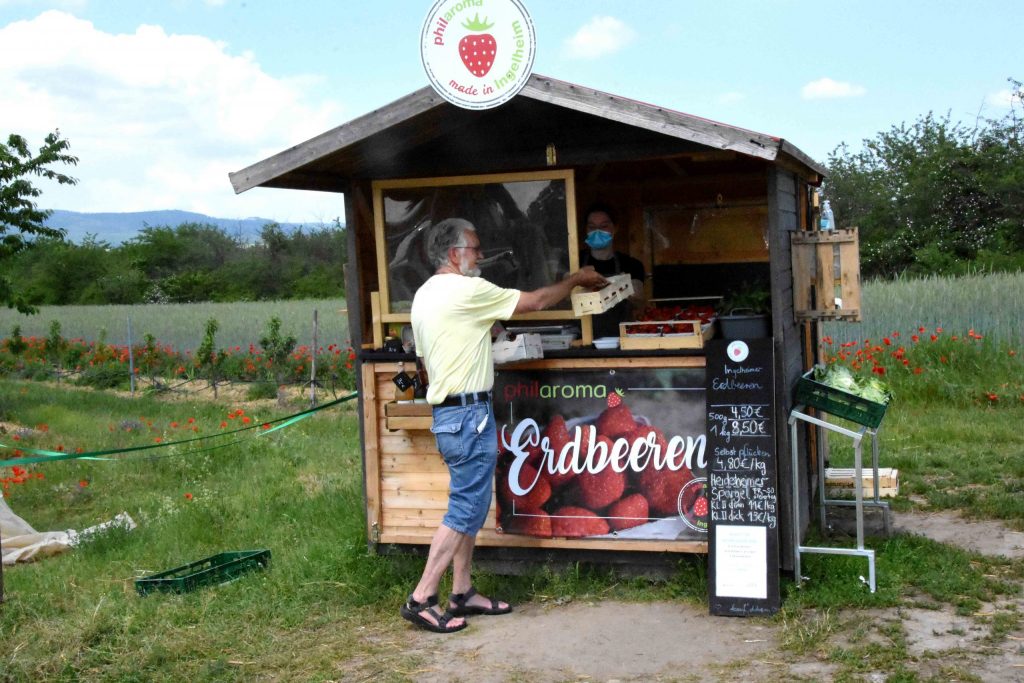
Margarete Jost and Markus Kirn have also taken up the motto "Experience farming". Together, they run the Wiesenobst farm in Ingelheim - better known as the "Philaroma". With her three children, I meet her in her strawberry field. It is almost 30 degrees, the sun is burning and yet the small parking lot is well filled.
Strawberry paradise on ten hectares
"This is our field for self-pickers," explains Markus Kirn, who brought the idea of strawberry cultivation into the family about ten years ago. Philaroma" now grows strawberries on ten of the total 30 hectares, making it the only farm in the whole of Ingelheim.
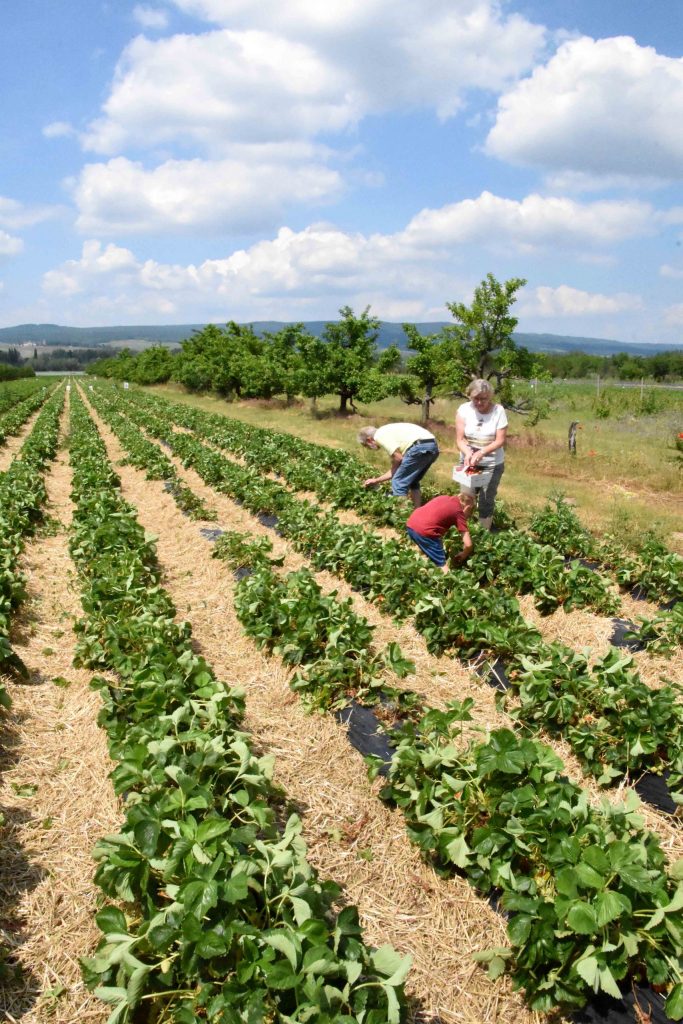
Like many other fruit growers in the region, Wiesenobst originally focused on stone and pome fruits. Markus Kirn, however, saw the great potential of strawberries. "Strawberries have to be eaten fresh, preferably directly from the field," says Kirn, which also quickly explains the idea of picking them yourself.
Like Jürgen Beckenbach, it is also close to his heart to get people excited about regional, fresh and, above all, sustainably produced products: "You learn to appreciate the value of a commodity better when you harvest it yourself, when you see where it comes from and when you recognize what the weather or other environmental influences do".
From the hand directly into the basket
Self-picking strawberries is well received. Just under 20 percent of Philaroma strawberries go directly from the customer's hand into their basket. The fact that some of the strawberries disappear in the mouth is accepted by Margarete Jost and Markus Kirn accept with an understanding smile. "Our customers should know what they're getting. We have many different varieties, so they're allowed to try a few," says Jost.
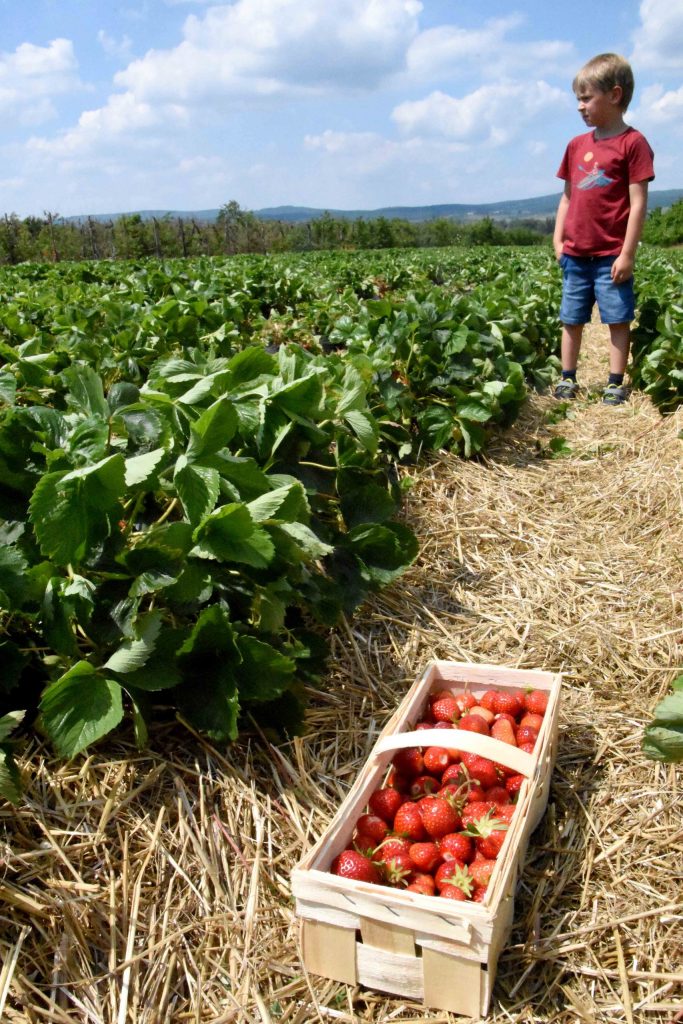
From April to October, the red aromatic fruits ripen in their fields. aromatic fruits. What is not sold through the self-picking field, is delivered fresh daily to their roadside stands or other regional farm shops. delivered. Direct marketing par excellence!
Things get colorful in the farm stores
While in April and May asparagus and strawberries still dominated the colors white and red on the street stalls and in farm stores, the assortment slowly becomes more colorful from mid-June. From cherries, apricots, peaches and various berries to apples, pears, plums, mirabelles and quinces - it begins the high season in the Rhine-Hesse fruit growing and thus also the high season at "Gottschalk fruit". For 100 years, the family business has been cultivating orchards around Ingelheim and selling its products in its own farm store.
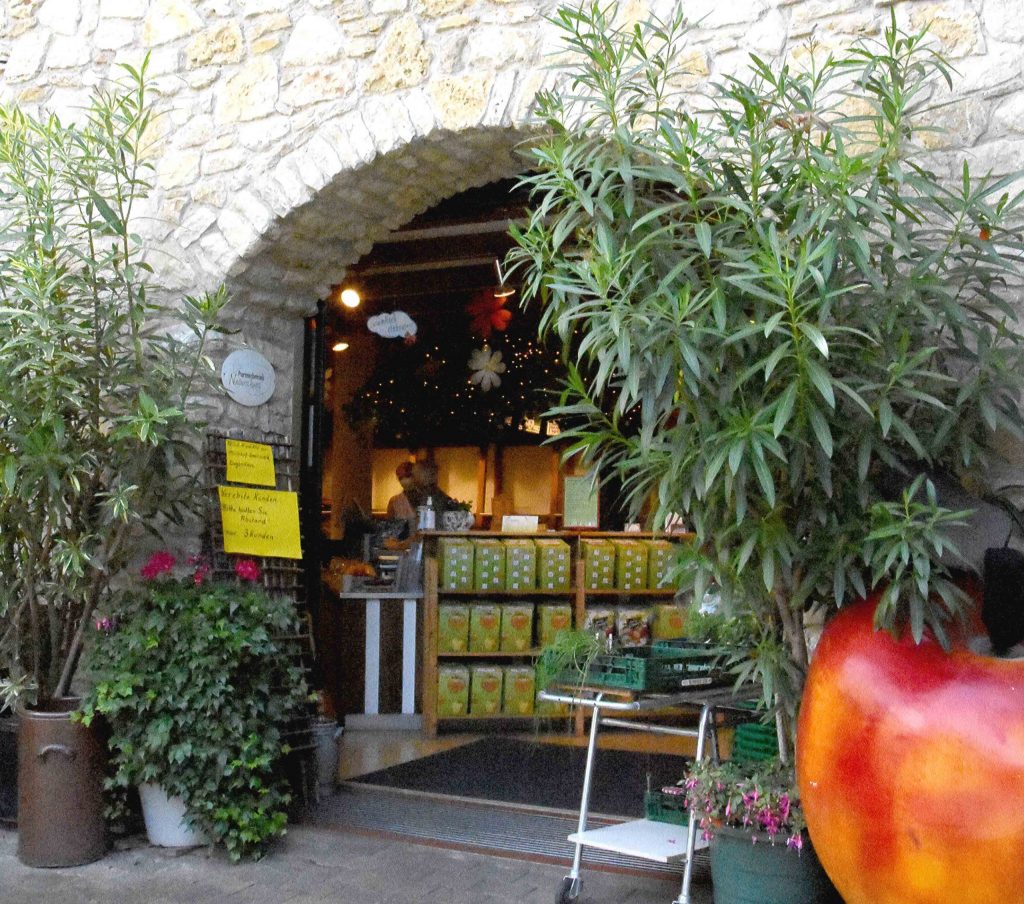
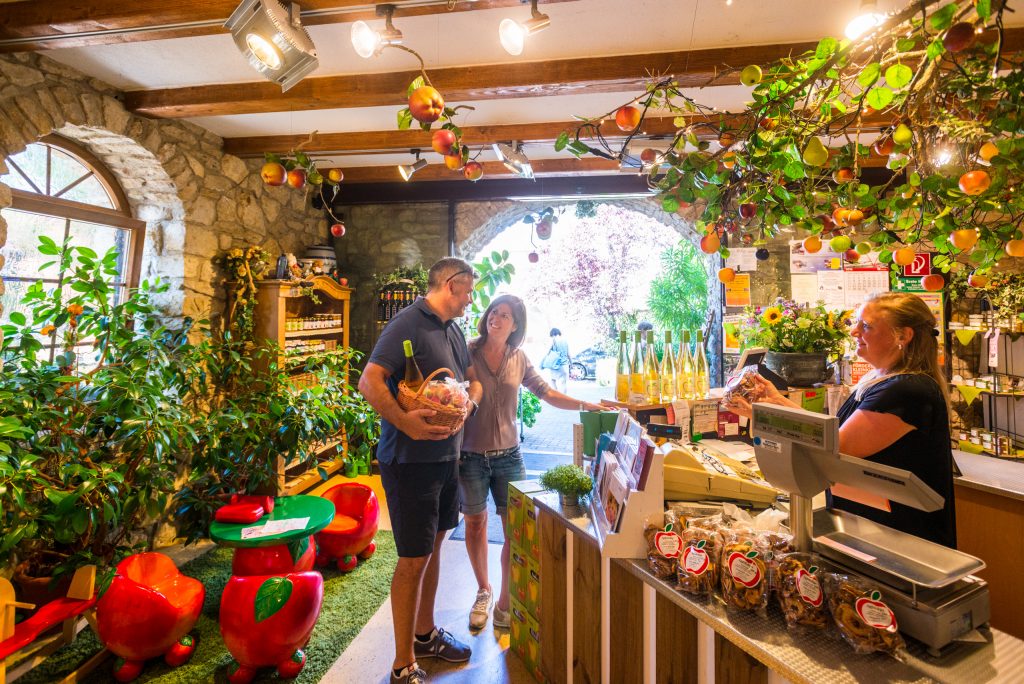
There I meet Elli Gottschalk. She is the good soul of the farm and the front woman when it comes to selling Gottschalk fruit. In 2011, her husband Micha and she took over her parents-in-law's farm and - as in previous years - have continued to develop it. The range of fruit that grows on Gottschalk's plantations is diverse.
From June, the shelves of "Elli's Hofladen" will be stocked with almost everything that the Rhine-Hessian orchard has to offer. With her small fruit truck, Elli Gottschalk is on the road at markets in the region or at festivals selling her delicious offer and gladly takes the time for a nice chat.
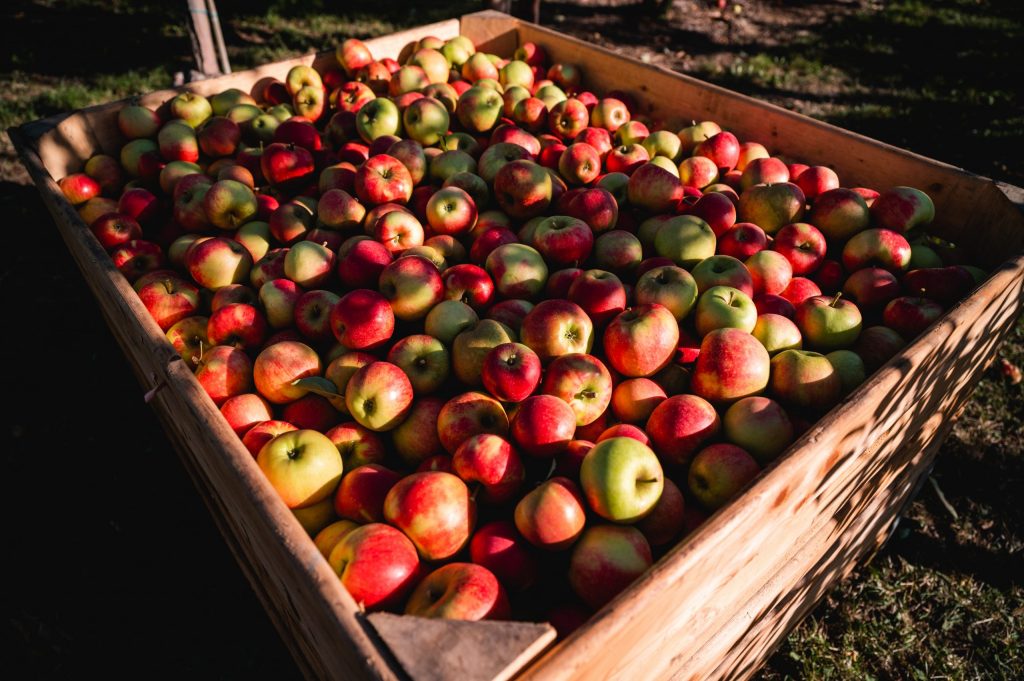
Rhapsody for direct marketing
"Direct sales are going well. Awareness of regional fruit and the willingness to pay a little more for it has increased," says Elli Gottschalk happily, referring to another distribution channel that is very close to her heart: The market hawks. The motto of the nationwide movement, which now already has more than 120,000 members, is "Fairer shopping. Eat better" and is a prime example of direct marketing.
"It's a regional network of consumers and producers, with the goal of creating direct access to regional food for everyone," she says, explaining the idea. "Simply order online, pay, and pick up your goods at the appropriate pick-up locations."
Only 100 % fruit juice comes in the canister
Despite their successful direct sales, Gottschalk Obst is also struggling with the current framework conditions. Ever lower market prices, rising costs due to minimum wages and more and more regulations from politicians are making it difficult for fruit growers. "You have to look for niches," says Gottschalk.
"We have specialized in juice production in addition to our classic fruit cultivation." 100 % fruit juice, without additives - at Gottschalk Obst this is 100 % true. "Those who want can also bring their own fruit, have it processed and take their juice home - this is a unique offer in the whole region."
Enthusiasm for regional
I leave the Gottschalks' farm with a bulging shopping basket. My conversations in the three farms - which are only exemplary here for a Large number of fruit and vegetable growers in Rheinhessen have once again opened my eyes to the variety and quality of local produce and shown me how much fun it can be to buy fruit and vegetables in farm stores or street stalls.
My conclusion: Why go far, when good things are so close? so near? This is also true, or perhaps especially true, for the daily shopping!
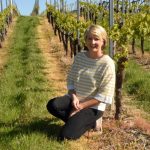
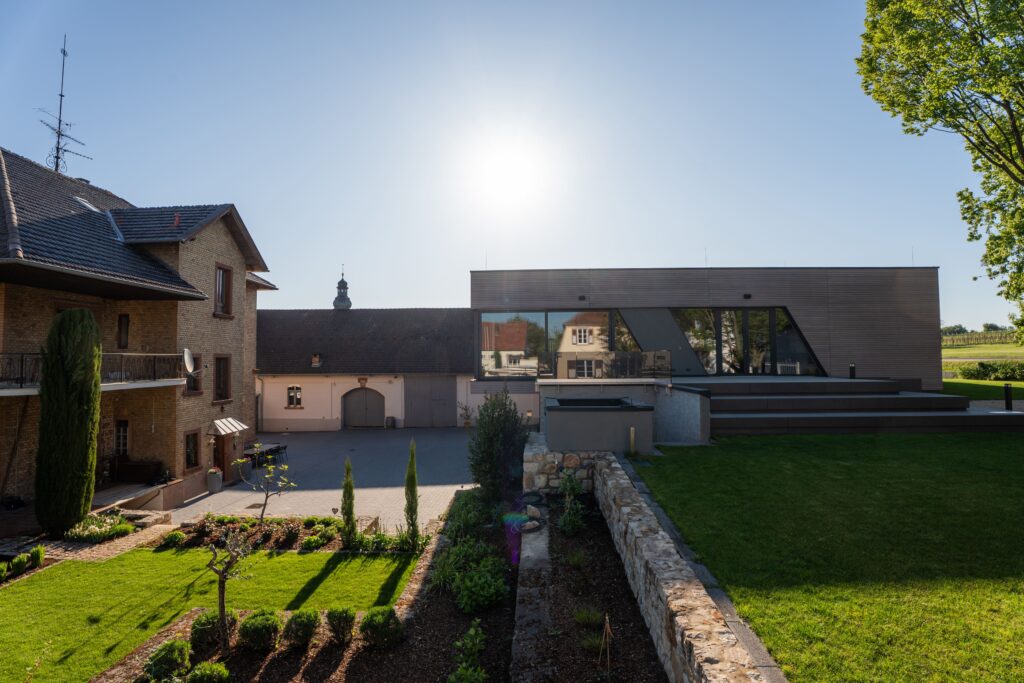
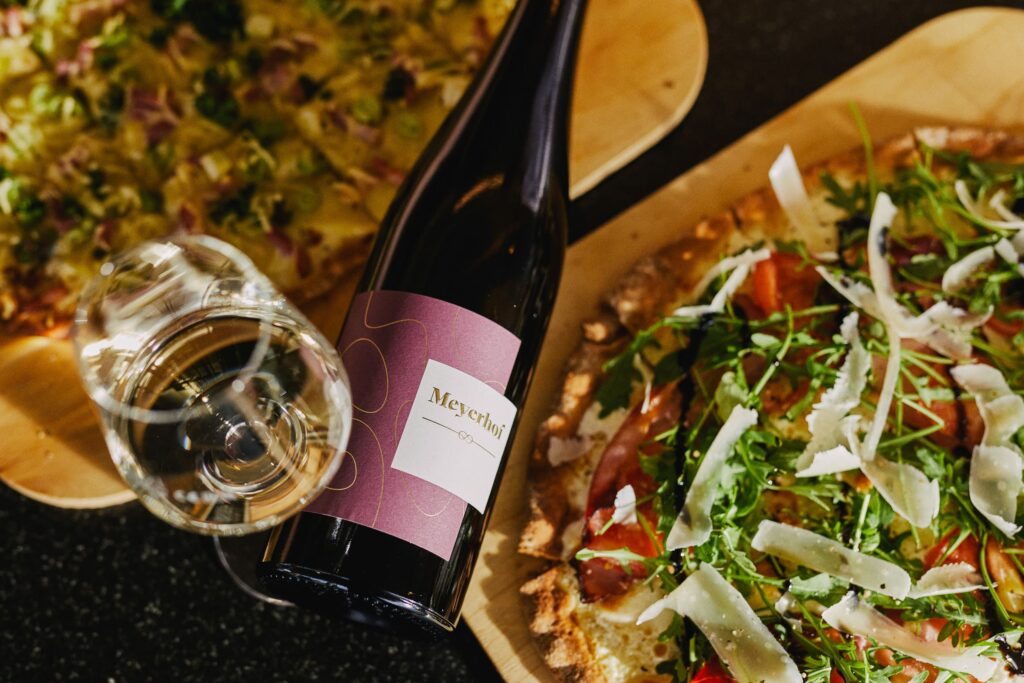
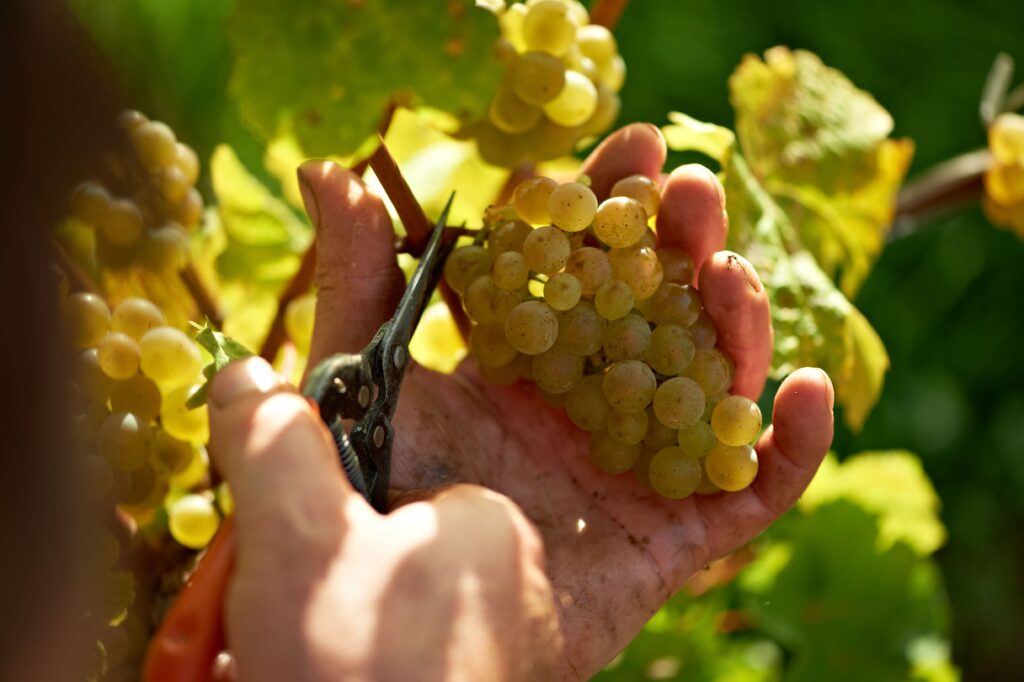
4 Responses
Very nicely written and also great pictures. Keep it up!
Best regards from the Altrhein.
I particularly like the vending machines: Egg vending machine, milk vending machine and again and again also a wine vending machine! so class and directly from the producer
Is there a brochure with all the farm stores?
Dear Ms. Schaffner, yes, they do exist. You can view and download them online here: https://resc.deskline.net/documents/1/RPT/f84e1ed0-6c7c-46fc-9ee1-4cafac0ef65a/Einkaufsf%C3%BChrer.pdf. You can also order them and we will send them to you by post. Send an email with your address to info@rheinhessen.info is sufficient. Best regards Ingrid Weigerding